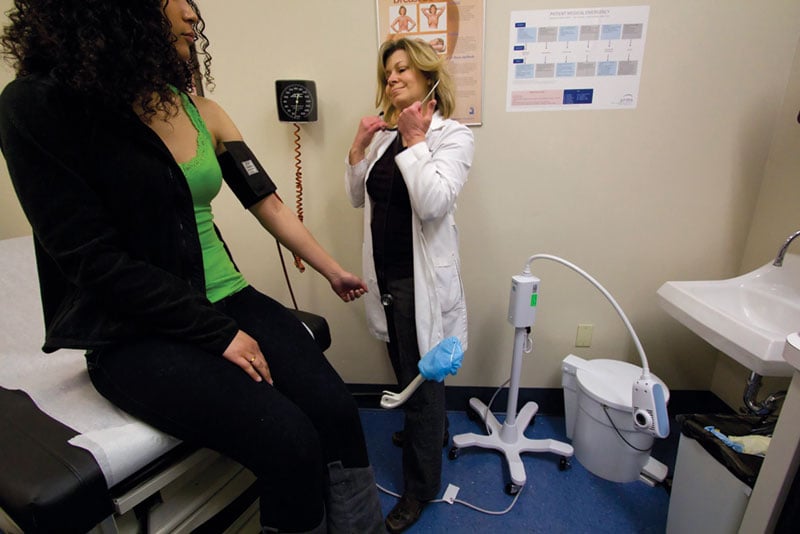
Experts: Texas Must Tackle Racial Disparities in Prenatal Outcomes, Premature Births


Texas babies have higher premature birth rates than the national average, and the infant mortality rate for black babies is twice as high as that of white or Hispanic babies, experts told lawmakers at a legislative hearing on Thursday.
To combat the problem, Texas must improve access to health care for pregnant and postpartum women — especially women of color — medical experts and public health advocates told members of the House Public Health committee.
The committee, chaired by Denton Republican Myra Crownover, met to address an interim legislative charge instructing lawmakers to study the barriers to prenatal and postpartum health services and evaluate existing state programs before the 2017 session.
“You might think that this is just about women and children, but any person that is a father, husband or dad knows that it’s not limited to women and children,” Crownover said, opening the hearing.
Evelyn Delgado, an assistant commissioner with the Department of State Health Services (DSHS), told the committee that Texas’ infant mortality rate, which currently hovers at 5.9 percent, has been declining for five years. But, she said, babies born to African-American women are still twice as likely to die as those born to white or Hispanic women.
According to DSHS, women of color are less likely to receive needed prenatal care. Thirty-nine percent of Texas women who received late or no prenatal services are Hispanic, and 47 percent are African American.
“Prematurity is the main reason why babies are dying within the first year of life,” testified Charleta Guillory, a neonatologist at Texas Children’s Hospital. “Prematurity is also the reason that 50 percent of our babies have developmental delay.”
Treating infants born premature or at a low birthweight costs the state more than $4 million a year, said Lesley French, Health and Human Services Commission (HHSC) assistant commissioner for women’s health services. The cost of treating a premature infant can reach as high as $63,000, while treatment for a healthy infant costs about $400, she said.
During the largely informational hearing, lawmakers spent little time discussing how they might fund additional services, instead focusing on the scope of the problem.
Experts said that poverty and domestic violence during pregnancy keep women from accessing prenatal care early on, and many women also face logistical hurdles, such as paying or taking time off work for appointments.
“Among those women that did not access prenatal care as early as they wanted, the biggest barrier was not having insurance, not having enough money to access prenatal visits, or not having a Medicaid card,” said Adriana Kohler, senior public policy associate at Texans Care for Children. “Those are issues that can be addressed.”
State Representative John Zerwas, R-Richmond, expressed concern about the 69,000 to 79,000 Texans affected by postpartum depression every year. Currently, pregnant women on Medicaid lose their health coverage 60 days after delivery, and signs of depression can go undetected, he said.
But come July 1, French said, women on Medicaid will automatically be enrolled in the new Healthy Texas Women program for postpartum care and other health services.
Still, Kohler pointed out, the new Healthy Texas Women, along with a patchwork of other state-funded reproductive health care options, can only reach so many women. According to the Kaiser Family Foundation, more than 400,000 uninsured women fall into the so-called coverage gap created by Texas leaders’ refusal to expand Medicaid under the Affordable Care Act.
Kohler encouraged lawmakers to find a “workable solution for the coverage gap in order to maximize federal funds and increase the number of women able to get into coordinated care before, during and after pregnancy.”


